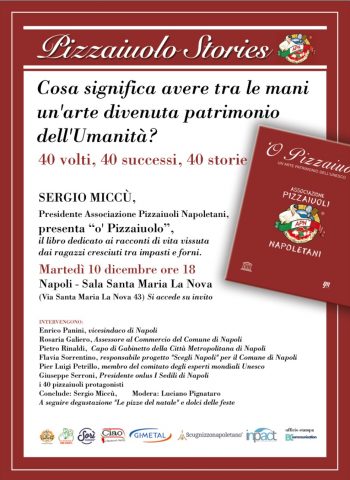Interview with Mattia Spedicato of the Geranium in Copenhagen
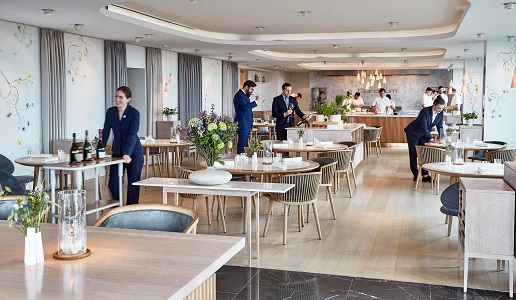
A chat with the deputy restaurant manager of the No. 1 restaurant in the world according to The World's 50 Best Restaurants 2022 ranking. The dining room, young people, Italy and more topics.
Mattia Spedicato, a native of Salento, is the deputy restaurant manager of Geranium in Copenhagen, the restaurant voted the world's best in The World's 50 Best Restaurants 2022 edition. Over time, the Geranium has climbed the rankings from No. 49 in 2012 to No. 2 in 2021 to reach the top. The creature of Rasmus Kofoed and Søren Ledet aims for perfection with rigor and maniacal attention to detail in plate and service performance.
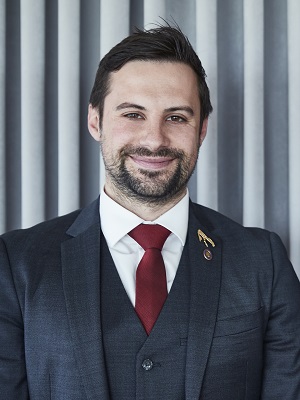
Mattia, a native of Campi Salentina, a small town in the province of Lecce, is a low-profile, high-performance kind of guy; he made his own way, abroad he found opportunities to build his future, fulfill himself and start a family. He took his first steps in the restaurant world when he was 15, the fascinating world of wine captivated him late, when he landed at Geranium in 2015 at the age of 25 despite the fact that his grandfather was a small winemaker. He is a promising young Italian but not the only one; at Geranium about a third of the staff is Italian.
With Mattia Spedicato we tackled a thorny and somewhat current topic, the sala emergency. The goal is to understand whether the phenomenon is a global problem or just an Italian one.
DoctorWine: What did you dream of doing when you grew up?
Mattia Spedicato: As a child I imagined being a pilot of military aircraft, growing up I changed my mind, I hoped to do a job that would allow me to travel and live in another state.
DW: In Italy for some time now the discussion has been raging about the lack of personnel in the tourism sector and specifically in finding wait staff and kitchen staff for restaurants. Are we the country of slackers and citizenship income?
M.S.: I don't think Italy is a country of slackers; on the contrary, we are always well regarded abroad, except in exceptional cases. This does not mean that slackers in Italy do not exist.
DW: Abroad, according to what is your experience, do they have difficulties in finding staff?
M.S.: The problem is unfortunately not local but global. The last two years have changed us, led the public to rethink their lives, their habits and how they can try to improve them. The mistake was also ours because we were not able to devise an ideal working environment for promising young people to fall in love with the most beautiful industry in the world: hospitality.
DW: The Geranium room stands out for its perfection, the team is perfectly synchronized and close-knit. What is the secret of such top performance?
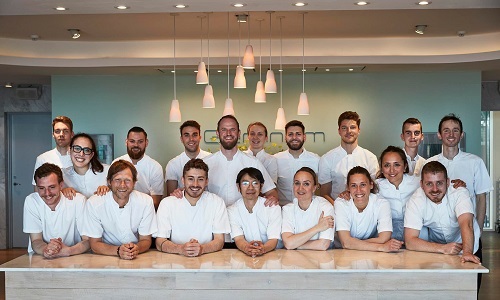
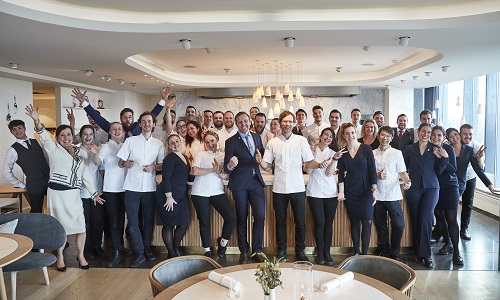
M.S.: Those who come to work with us know that our way of thinking about catering and service is unique. Once you understand the way we operate, that's it. But it's not a place for just anyone. Attention to detail is very important. It is the little things that make the difference and complete a wonderful work. The other key factor is the team; you have to surround yourself with close-knit professionals who are in love with their work and who are willing to sacrifice themselves and put aside their daily problems every day to make the guest's experience unique from arrival to farewell. A piece of cake with a candle or a glass of bubbles can make that moment unforgettable. The room needs to be able to engage the guests 360°, personalizing interactions with them as much as possible; it should be remembered that the modern waiter is no longer just a "servant" but is also a psychologist, actor, opinion leader, meteorologist, winemaker these "tools of the trade" contribute to enhancing the dining experience of the guest.
DW: Is there a difference between the dining room in Italy and Denmark?
M.S.: I have never worked with high-end dining in Italy, from what I have seen and heard there is an environment with too much formalism and excessive detachment between guests and "servers." Hierarchical pressure within the restaurant also takes its toll, affecting the sense of freedom of chefs and waiters.
DW: Does staff turnover have the same dynamics as in Italy?
M.S.: We have managed to create an environment with very low turnover. We do not offer an apprenticeship but the opportunity for anyone to do an internship as long as they stay with us for at least a month, actually those who come stay at least one or two years. Almost half of the staff has put down roots, they have been here for three to four years already, I have been working at the Geranium for seven years. One of the reasons for staying is probably the distinct sense of freedom that we are able to establish with our new colleagues from day one. You have to give individuals a chance to be themselves, to express themselves, so that everyone can bring a little personalization to their work. The environment is bubbly, young and serene. There are about 40 of us, 17-18 in the kitchen, 12-13 in the lounge, 3 in the backoffice and 5-6 interns.
DW: What is your advice to people who want to do this work, leave or stay in Italy?
M.S.: To become a professional in our field there is a need to travel, experiment and discover new points of view, types of cuisine and working environments to enrich one's cultural and personal background. I have never regretted leaving. To those who do not want to leave Italy, I recommend having an experience outside your "comfort zone," it is absolutely necessary to change for the better.
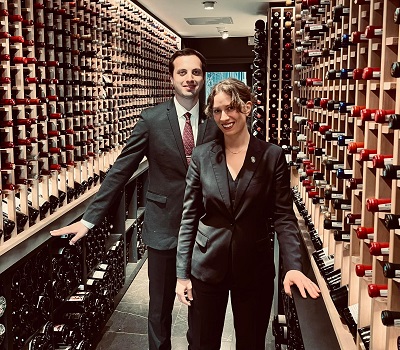
DW: Wine list. How many labels in total and Italian labels specifically?
M.S.: In 2015, when I joined, there were just over 30 Italian labels on the list. Today we count roughly 600-700 out of a total of 4,400-4,500. Certainly, this improvement did not happen because of me but because of the exceptional pool of sommeliers who support the winery director and owner Søren Ledet, help him unearth so many wonderful wineries around the world through friends of friends, site visit or personal knowledge. Each sommelier can recommend wines that can potentially be added to the list. Søren vacations in Puglia, this is the third year in a row.
DW: The Geranium has reached a prestigious milestone, what does it mean to you?
M.S.: We are pleased and happy to have reached such a remarkable goal thanks to everyone's hard work. Today, thanks to this, we have a greater awareness of our capabilities and responsibility to continue to be a model restaurant for all those who want to take this path.
DW: What do you want to do when you grow up, return to Italy or start your own business?
M.S.: Well, there are many dreams, but for the moment I am really happy here, setting up house and doing the work I love with wonderful people who have infinite trust in me. Among the many aspirations, the most concrete for the moment is to be more and more connected to the world of Italian wine, I have realized this by opening a small import company of exclusively Italian wines ViaVino.dk with some friends, including Søren Ledet himself.
DW: Can you explain more about what Viavino is?
M.S.: ViaVino is a project born during the lockdown. "Taking advantage" of the restaurant's lockdown period, I was able with Søren and a couple of friends to concretize the projects we had in mind and import wines from small producers from little-known wine-growing areas in the Danish market. At the same time, we organized online events for winelovers and wineries. Today, it is our hobby outside of Geranium that we continue to cultivate with passion.
Geranium
Per Henrik Lings Allé 4, 8 Sal
2100 København
Danimarca
www.geranium.dk
https://www.facebook.com/restaurantgeranium

 Italiano
Italiano








